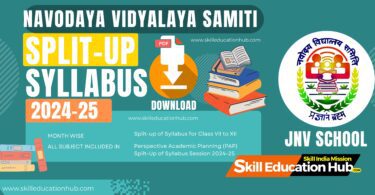
Pupils must satisfy the following qualifying conditions to obtain a Master of Library and Information Science degree:
- Pupils must have a bachelor’s degree with a minimum of 50 per cent-60 per cent aggregate.
- Students must be between the ages of 20 and 22 to apply for this programme.
- Candidates with either a bachelor’s degree in library and information science or a bachelor’s degree in library science will be prioritized.
- A minimum grade point average of 50% in high school is also one of the requirements for entrance to this programme.

This course comes with a lot of advantages. The following are a few of them:
- The candidate develops the management abilities to the level of a professional.
- Students can pursue advanced degrees such as M.Phil. or PhD in suitable subjects.
- Prepares the students for the information difficulties that they may face in the future.
- Allow both the commercial and governmental sectors to flourish.
- Improves the candidates’ information retrieval and storing abilities.
- Students will be able to build and develop knowledge-organizing systems.
- Students may simply develop their own reader’s advisory materials based on their interests.
- An M.Lib.I.Sc. usually opens up a world of possibilities for storing knowledge and information in safety systems and making it available to academics and professionals whenever they need or want it.

Students can continue their education in the same subject or start their own book company by establishing their library. Following are a few doctoral courses that can be pursued after completing the MLIS programme :
- PhD in Library and Information Science
- M.Phil in Library and Information Science
Today, we may learn about history through historical knowledge stored in libraries and museums. Museums and libraries hire librarians and curators to pass on their expertise to the next generation. Master of Library and Information Science (M.Lib.I.Sc.) programmes give the necessary expertise to pursue this professional path. M.Lib.I.Sc is one of the world’s oldest and most significant occupations, with excellent compensation. They assist library users in conducting research and locating information. They educate students about information resources and assist them in evaluating search reference materials and outcomes as teachers. They are most commonly seen at libraries, universities, and schools.
In addition, they can serve as an Academic Librarian, Library Attendant, counsellor, Information Analyst, Technical Writer or career consultant and the teacher are the most prevalent job profiles in this profession. Aside from private enterprises, the institutional sector offers a variety of options.
What is average salary for an (MLibSc) ?
The average salary for an(MLibSc) ? about INR 3-4 lakhs per year.
What is Eligibility for Master of Library Science (MLibSc) ?
The eligibility criteria for a Master of Library Science (MLibSc) program can vary between institutions, but there are some common requirements:
- Bachelor’s Degree: Typically, candidates are required to have a bachelor’s degree from an accredited institution. The field of study for the bachelor’s degree may not always be specified, meaning candidates from various academic backgrounds are often eligible to apply.
- Academic Performance: Institutions may have minimum GPA requirements for admission. This GPA threshold can vary depending on the competitiveness of the program and the institution’s standards.
- Letters of Recommendation: Some MLibSc programs may require applicants to submit letters of recommendation from professors, employers, or other individuals who can attest to the applicant’s academic abilities, work ethic, and suitability for graduate study in library science.
- Statement of Purpose: Applicants may need to submit a statement of purpose or personal statement outlining their academic and professional background, their reasons for pursuing the MLibSc degree, and their career goals in the field of library and information science.
- Standardized Test Scores: While not always required, some institutions may request standardized test scores, such as the GRE (Graduate Record Examination) or equivalent tests, as part of the application process.
- Work Experience: Some programs may prefer or require applicants to have relevant work experience in libraries, archives, or information centers. This experience can demonstrate a candidate’s commitment to the field and their understanding of library and information science principles in practice.

The Master of Library Science (MLibSc) degree offers several benefits for individuals interested in pursuing careers in library and information science:
- Professional Qualification: Obtaining an MLibSc degree provides individuals with the necessary knowledge and skills to work in various roles within the library and information science field. This includes positions such as librarians, information specialists, archivists, digital asset managers, and more.
- Diverse Career Opportunities: Graduates with an MLibSc degree have access to a wide range of career opportunities across different types of libraries (public, academic, special, etc.), archives, museums, information centers, and other information-related organizations. This diversity allows individuals to choose career paths that align with their interests and strengths.
- Information Management Skills: The MLibSc curriculum typically covers topics such as information organization, retrieval, management, and preservation. These skills are valuable in today’s digital age, where the management and dissemination of information are essential across various industries and sectors.
- Adaptability and Innovation: MLibSc programs often emphasize adaptability and innovation in response to technological advancements and changing user needs. Graduates are equipped with the ability to leverage emerging technologies, such as digital libraries, data management systems, and information retrieval tools, to enhance library services and information access for patrons.
- Professional Network: During their studies, MLibSc students have the opportunity to build relationships with faculty, classmates, and professionals in the field through internships, practicums, and networking events. These connections can be invaluable for career development, mentorship, and collaboration throughout their careers.
- Contribution to Society: Librarians and information professionals play a crucial role in promoting information literacy, supporting lifelong learning, preserving cultural heritage, and providing equitable access to information for all members of society. Graduates of MLibSc programs have the opportunity to make meaningful contributions to their communities by facilitating access to information and knowledge resources.
In a world where information is abundant and rapidly evolving, the role of librarians and information professionals has never been more vital. With the digital age continually reshaping how we access, organize, and utilize information, the pursuit of a Master of Library Science (MLibSc) degree opens doors to a dynamic and rewarding career path.
Adapting to Technological Advancements: One of the key aspects of an MLibSc program is its focus on staying abreast of technological advancements. Libraries are no longer just repositories of books; they are hubs of information in various formats, including digital resources, multimedia materials, and online databases. As technology continues to evolve, librarians equipped with an MLibSc degree are well-positioned to harness these tools to enhance information access and delivery for patrons.
Navigating the Digital Landscape: The digital revolution has transformed the way we seek and consume information. Librarians with MLibSc qualifications are adept at navigating this digital landscape, ensuring that patrons can access accurate and reliable information efficiently. From managing digital collections to providing guidance on information literacy and digital literacy skills, MLibSc graduates play a crucial role in facilitating access to knowledge in the digital age.
Embracing Innovation in Libraries: MLibSc programs foster innovation and creativity among future librarians. Whether it’s implementing new technologies, designing collaborative spaces, or developing innovative programming, MLibSc graduates are at the forefront of reimagining the role of libraries in their communities. By embracing innovation, librarians can create dynamic and engaging library experiences that meet the evolving needs of patrons.
Advocating for Information Equity: Librarians with an MLibSc degree are champions of information equity and intellectual freedom. They strive to ensure that all members of society have access to information and resources regardless of their background or circumstances. Whether it’s providing outreach services to underserved communities, advocating for open access to information, or promoting diversity in library collections, MLibSc graduates are committed to fostering inclusivity and access for all.
Collaborating Across Disciplines: The interdisciplinary nature of library science opens up a world of opportunities for collaboration. MLibSc graduates work closely with educators, researchers, community leaders, and other stakeholders to support learning, research, and community engagement initiatives. By fostering collaborations across disciplines, librarians contribute to the advancement of knowledge and innovation in their communities.
The Admission Process for an MLibSc program typically involves the following steps:
- Application Submission: Candidates begin by submitting an application form provided by the respective institution. The application form includes personal details, educational background, work experience (if any), and other required information.
- Application Review: The admissions committee reviews all applications to assess the candidates’ eligibility, academic background, work experience, letters of recommendation, and statement of purpose. Shortlisted candidates may be invited for further evaluation.
- Entrance Examination (if applicable): Candidates who need to take an entrance examination must register for and appear for the exam. The examination assesses their knowledge of library and information science-related subjects.
- Interview (Possibly): Shortlisted candidates may be called for an interview. The interview panel assesses the candidate’s motivation, communication skills, and alignment with the program’s objectives.
- Selection and Offer: Successful candidates receive an official offer of admission from the institution. The offer typically includes details about the program, curriculum, tuition fees, and other relevant information.
- Enrollment and Fee Payment: Admitted students must complete the enrollment process by submitting the required documents and paying the tuition fees within the specified deadline.
- Orientation: Newly enrolled students attend an orientation program, where they learn about the program’s structure, curriculum, faculty, facilities, and other important aspects.
- Commencement of Classes: Classes for the MLibSc program begin as per the academic calendar. Students engage in lectures, practical training, research projects, and hands-on learning related to library and information science concepts and tools.
- Assessments and Examinations: Throughout the program, students are assessed through examinations, assignments, research projects, and practical demonstrations. Successful completion of the program requires demonstrating proficiency in both theoretical knowledge and practical skills related to library and information science.
- Award of Degree: Upon successfully completing the Master of Library Science (MLibSc) program and fulfilling all academic requirements, students are awarded the degree, recognizing their expertise in library and information science.







